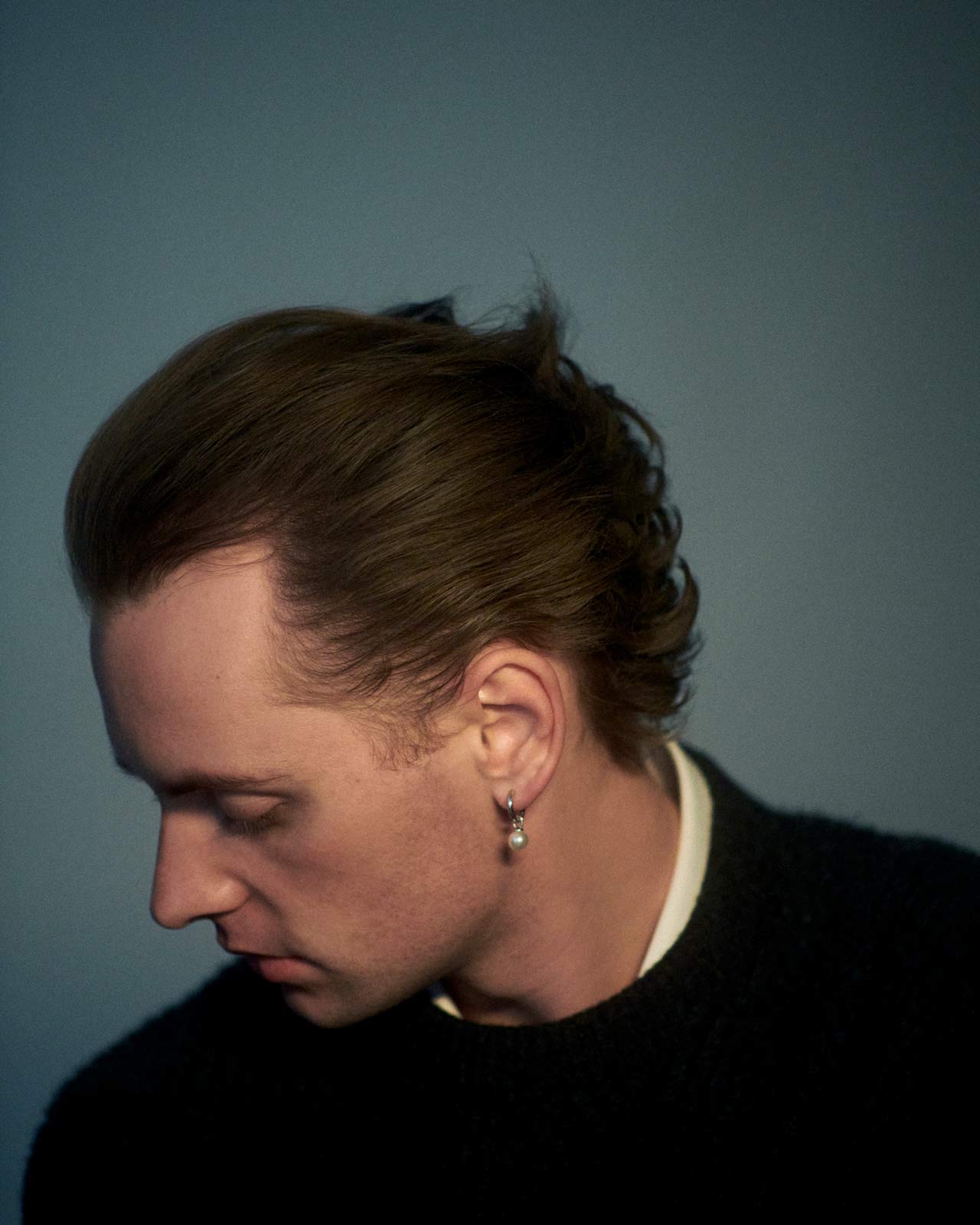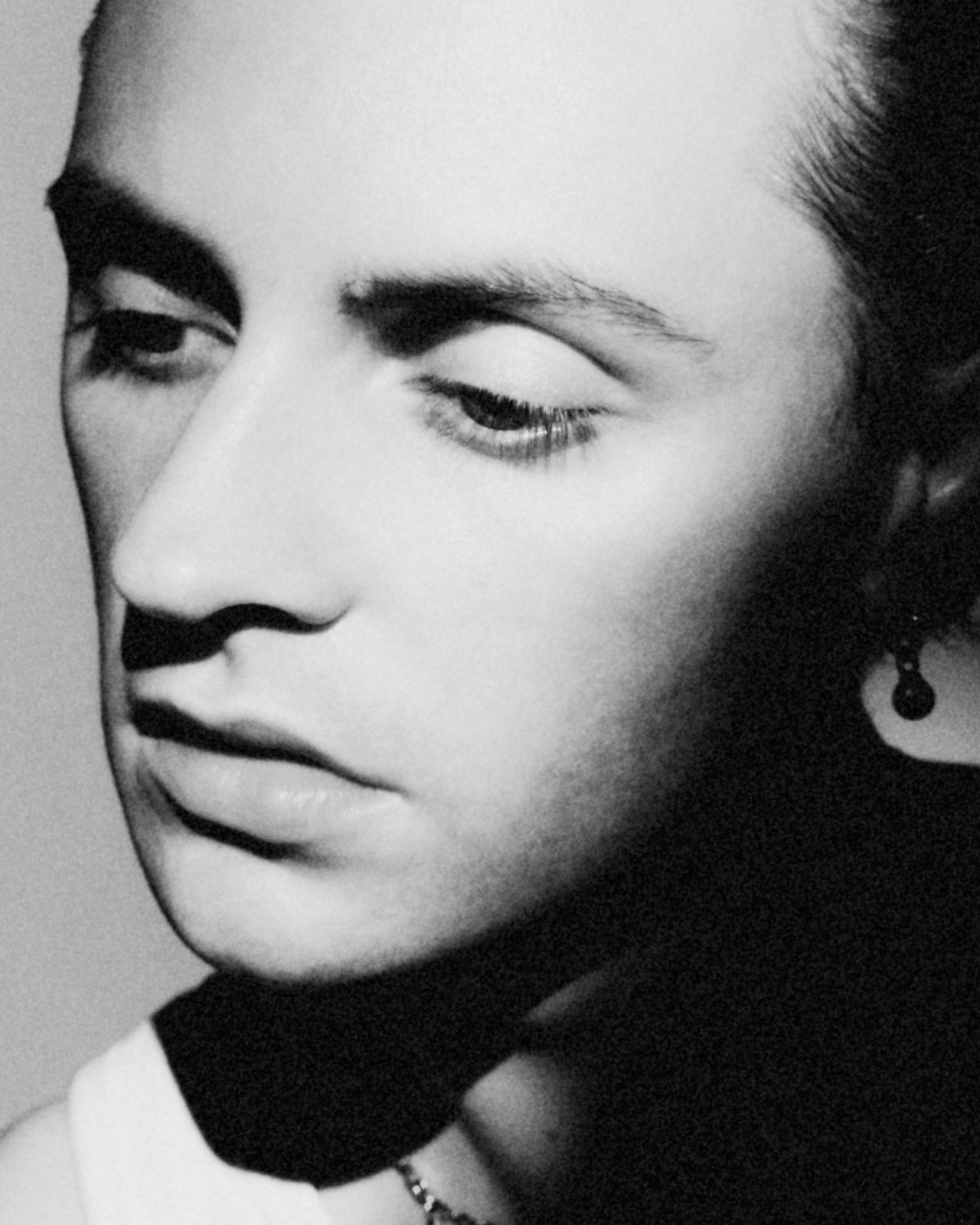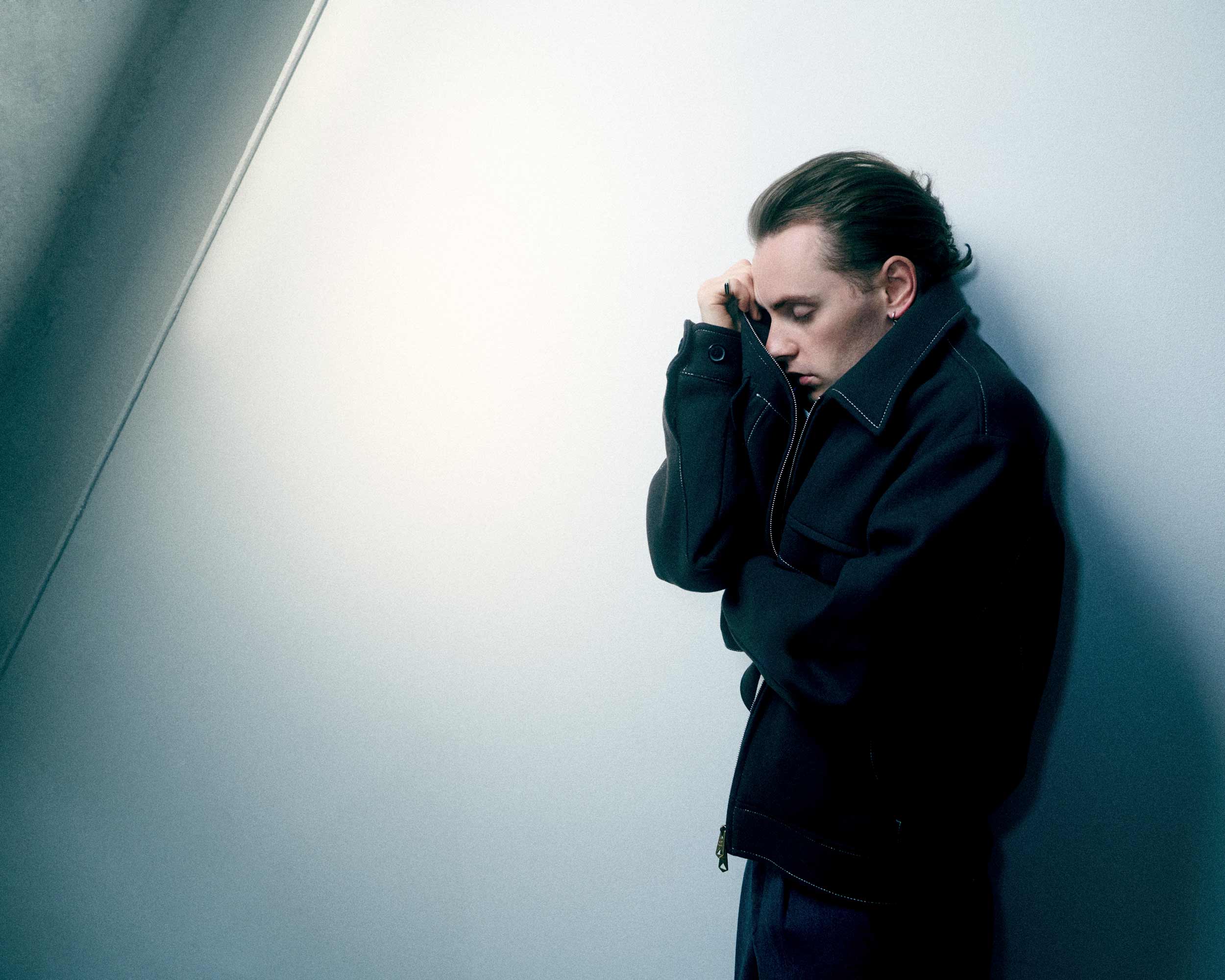The Croyden-raised artist’s sophomore album sprung from collaboration, forming a sonic landscape to meditate within
Jacob Allen wants to be at peace with death.
The singer-songwriter, who performs as Puma Blue, released his second full-length album, Holy Waters, earlier this fall. Across 11 tracks, he composed a musical landscape to wander and reflect on life and death—and to better understand how the two are interwoven. In November, Allen will embark on a North American tour in support of the album.
Holy Waters features the sugar-sweet vocals and ethereal guitar that define Puma Blue’s sound, but the album is distinct from Allen’s earlier projects. For his first record, In Praise of Shadows, and two previous EPs, he wrote and produced entirely on his own, only bringing in bandmates for live performances. With Holy Waters, the band was present from the beginning.
Allen says that his desire for collaboration sprang, in part, from 2020’s forced isolation. During that time, he was still writing songs—he just wasn’t excited about the output. For much of the following year, he faced a creative drought. The writer’s block made him realize that working solo had lost its luster. “I started to write [again], just by having fun and playing with it,” he says, comparing the process to tinkering with Legos.
Allen grew up just outside of Croydon, in South London (“known for early dubstep and Kate Moss, but not much else”), and has vivid memories of sitting in the back seat of his parents’ car, listening to Stevie Wonder and the Beatles and feeling enthralled by what he heard. His parents took note of his musical interests: For his seventh birthday, they bought him a drum lesson. “I just loved it,” Allen says. “I came back from the lesson super excited. I don’t think they had ever seen that enthusiasm from me before.”
By the time he was 10, Allen knew music would be a lifelong pursuit. He picked up guitar at 13, crediting a range of artists—from John Mayer to the White Stripes—for inspiring the change in instruments. He enjoyed the guitar’s variety of sound, demonstrated in Jack White’s rollicking electric riffs and Mayer’s refined acoustic arrangements. He played in bands during his teenage years and began writing songs, inspired by acts like Radiohead, Rage Against the Machine, and, later, Jeff Buckley—a singer Allen is often compared to.
In 2017, Allen released a collection of five songs under the Puma Blue moniker. The EP, titled Swum Baby, earned him attention from South London’s indie music scene. But it would be another four years before the release of In Praise of Shadows, a period during which Allen strengthened his craft as a songwriter. That eventual album shares a name with a 1933 collection of essays by the Japanese writer Jun’ichirō Tanizaki, in which he writes about wide-ranging subjects—from architecture to toilets—using shadow and light as a metaphor for the differences between Japanese and Western cultures.
Just as Tanizaki argued for the aesthetic value of shadows, in Holy Waters, Allen makes a case for the beauty of finding the light in the dark. A meditation on loss and grief, the album is an effort to recognize death “not as a villain, but as a part of life.” Puma Blue’s Spotify biography describes the artist as a romantic—and there is something Blakesian in the lyrics of the titular track, in which Allen confronts the proverbial waters and finds them to be surprisingly violent. Although he recognizes the waves have sunk “better men than me before,” he vows not to let them pull him under the surface: “I won’t this time descend / Back from where I’m sent.”
“It’s been beautiful, playing something that was born together, as a family project.”
Allen writes from experience, and has spoken about his struggles with depression and insomnia. He wrote “Holy Waters” after watching Roadrunner—the documentary about the life and inner-turmoils of Anthony Bourdain. The film made him reflect on his own challenges with mental health: “The song is about death before its time,” says Allen, “and overcoming it.”
Ultimately, Allen does not succumb to the waves’ pull. As is often the case, love is presented as the antidote to despair. The song refers directly to the artist’s romantic partner, who he lives with in Atlanta. “If scorched earth do become of us / Or every man is seized with lust / I will profess to have loved every form / And find you regardless in the storm.”
Shortly after the release of Holy Waters, Allen experienced one of life’s most profound yet ordinary losses: the death of a loved one. After spending so much time reflecting on grief and mortality, he says the upheaval was a stark reminder of death’s ubiquity. “I had covered so much ground with loss, and understood it much better,” says Allen. “To experience it again was kind of humbling.”
Right now, Allen is recuperating after a European tour, and looking forward to kicking off his North American circuit next month, starting in San Diego. He says that sharing his music with a live audience has been rewarding, as well as eye-opening. “It’s interesting to see what works and what doesn’t,” he reflects on realizing the album in concert. “We had to choose between certain songs so we weren’t conjuring up the same space again and again.” Ultimately, performing has been cathartic: “It’s been beautiful, playing something that was born together, as a family project,” says Allen. “These songs feel different.”
Groomer Pål Berdahl at LGA. Set Design Lizzy Gilbert at Jones Mgmt. Photo Assistant Nick Bannehr. Stylist Assistant Elina Mykhaielian.















